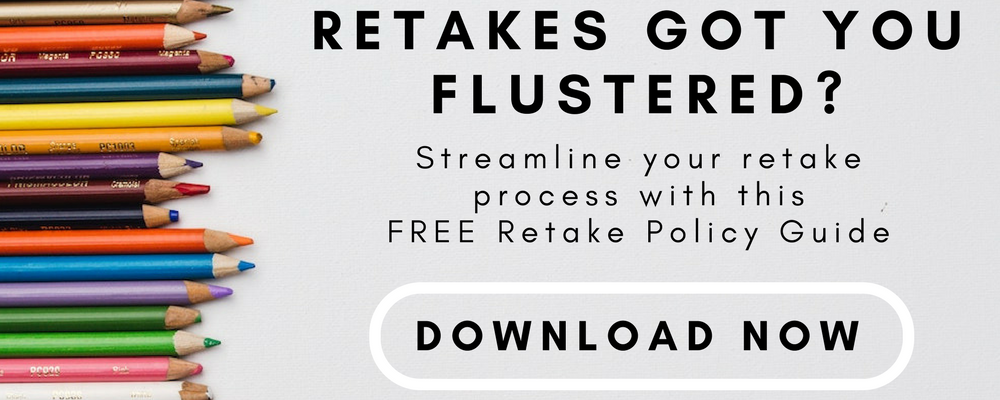In this Post:
- Classroom management is defined as the process by which teachers and schools create and maintain appropriate behavior of students in classroom settings
- Enhance management by finding time to meet with students for a more personalized approach to learning
- Make a deliberate choice to connect feedback to student understanding
According to the American Psychological Association based out of the University of Madison in Wisconsin, classroom management is defined as the process by which teachers and schools create and maintain appropriate behavior of students in classroom settings. Teachers can find hundreds of strategies to “better manage” their classrooms in countless books, podcasts, and blogs.
Are you searching for an effective classroom management solution? Change your grading practices and your behavior will change dramatically. #TeachBetter Share on XTechniques such as “call and repeat” strategies and the use of rewards to reinforce positive actions are tools educators use from the beginning of their career until they earn their veteran teachers status.
But what if educators are missing one of the key components of mastering classroom management? Assessment & Feedback!
Are you searching for an effective classroom management solution? Change your grading practices and your behavior will change dramatically!
Grading, a frequent hot topic in education, is made up of two elements: assessment and feedback. In simplest of terms, you need to evaluate the student (assessment) and provide the student with notes regarding their understanding of the skill (feedback). But, is your grade book and classroom conducive to accomplishing these elements easily?
Here are the top 2 ways to adjust your grading system to support better classroom management :
Tip #1: Find Time to Talk
There is an interesting quote Rena Hawkins provided in a recent Teach Better Talk Episode which provides some excellent insight into the battle many educators’ wage against time. Rena tells us that time is like closet space. You use what you have and you always want more.
Whether Rena knew it or not, this analogy is perfect for our first tip about improving management through grading practices: finding time to talk! With limited resources and overcrowded classrooms, educators continue to race the clock. Nevertheless, there are ways to structure a classroom to give you more time with your students. It is possible to have those deeper conversations that support their understanding.
Have you dabbled with Mastery Learning?
In a mastery focused classroom that utilizes personalized learning, pacing becomes a second tier focus. Rather, students are able to gain the support they need at the moment in time they need it. This allows not only for a shift in ownership of student learning from the teacher to the student but also allows for more freedom to conference with students and provide targeted feedback on a daily basis. More individual time with students, targeted feedback based on a students’ individual learning journey, and learning at the students’ pace all have the amazing effect of reduced management issues. If a student is getting what they need, when they need it, behavior issues become less likely.
If you are hunting for a framework supported by best practice pillars and implementation strategies to support student success, I can’t express enough how much I have enjoyed using The Grid Method Framework and how incredible the results have been for my students. To learn more, check out the Free Online Course over at the Teach Better Academy.
[scroll down to keep reading]
Tip #2: Numerical Values should translate into Student Understanding Levels
When an educator focuses on providing effective feedback, they need a strategy to make it work! This is easily accomplished by aligning what a student can earn (their score) directly to a level of understanding (mastery).
Imagine this: A student receives a paper back with 70% written at the top and multiple marks on the paper. The student takes 5 min to look through the teacher’s markings covering everything from spelling mistakes and sentence structures to content questions regarding the prompt. “I guess I am not a good writer,” the student thinks to themselves. Then what? Well, you are probably familiar with the reality that most students simply recycle the paper and hope to earn a better score in the future. Not exactly the behaviors we are looking to develop in our students, right?
Let’s try this a different way: Imagine that a student instead receives their paper with the following scores for specific targets. It might look like this:
Spelling: 2
Sentence Structure: 2
Content: 3
Introduction: 4
Conclusion: 3
The student takes 5 min to look through the teachers evaluation. However, this time, the student understands the connection between a score and the relationships to mastery:
4 – Above & Beyond Standard
3 – Mastery (Grade Level Expectation)
2 – Progressing toward Mastery
1 – Needs Development
Then what? Now, even if the student chooses to recycle the paper, they have a better understanding of the areas they need to improve on. While the paper was written well and met grade-level expectations, the writing had some significant grammatical errors. This may be an area the student chooses to focus more on in the future!
The bottom line: The numerical value of a grade does not matter if it does not support the student in their future growth. Therefore, whether an educator chooses to use a 4 point grading scale or a 10 point scale, standards-based grading or a more traditional approach, the goal is to more clearly identify areas of success as well as areas of growth with a clear connection to mastery.
When students understand where they stand and when they understand what a grade actually means, they have a clear path forward. This path leads to less confusion. Less confusion leads to less frustration. And you surely know that a less frustrated student is one with fewer behavior management challenges.
Conclusion
While classroom management encompasses an array of components taking place in the classroom, the choice to shift student ownership and provide clear feedback to students regarding understanding levels and expectations can change the culture of a classroom in an instant. So what are you waiting for?
About Rae Hughart
Rae Hughart is a Middle-Level Math and Writing Educator in Illinois and the Director of Training and Development for Progressive Mastery Learning, LLC. In 2017, Rae was honored with the Illinois State University Outstanding Young Alumni Award – inducting her into the University Hall of Fame.



